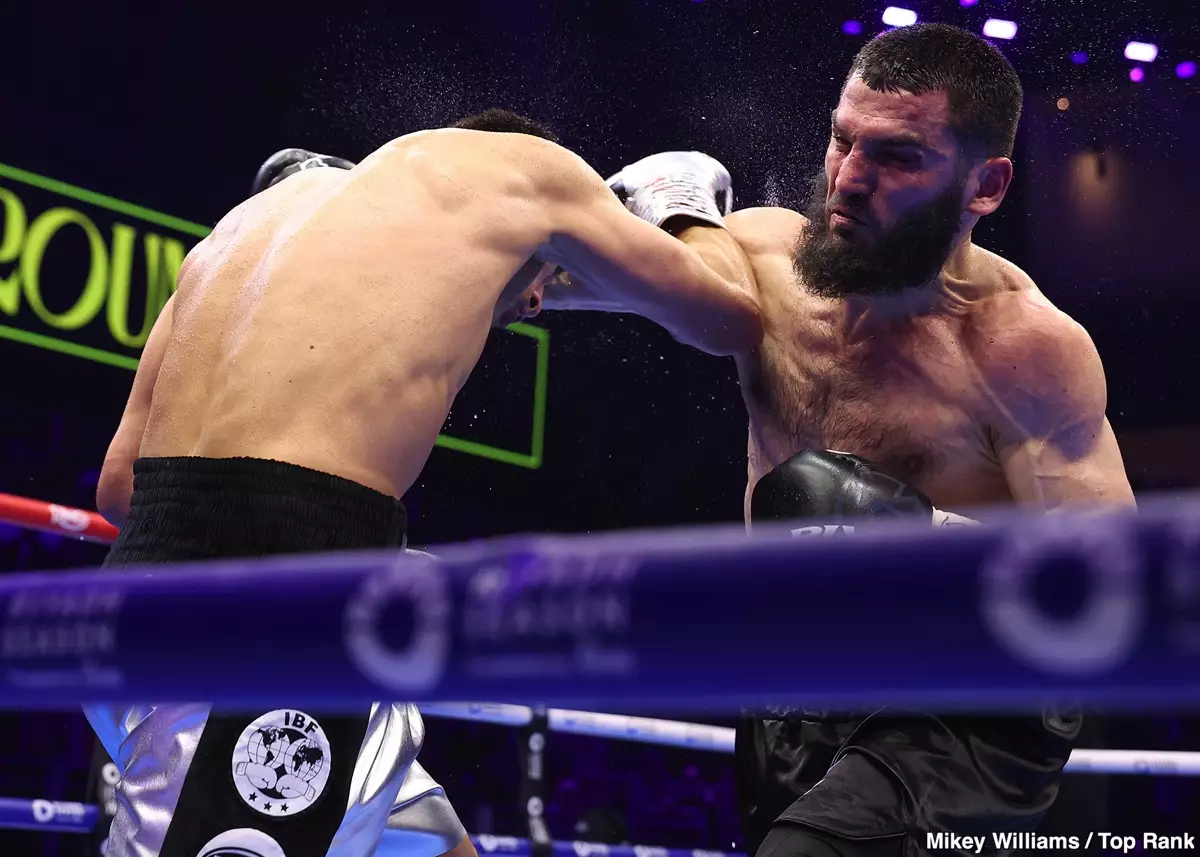The recent rematch between Artur Beterbiev and Dmitry Bivol in Riyadh sparked intense debate not just over the match itself but also about the efficacy and fairness of boxing judges. Beterbiev, with a record of 21-1 and a staggering 20 knockouts, was initially lauded for his performance, with his coach Marc Ramsay scoring him 5-1 in the early rounds. However, despite this apparent dominance, the result—a majority decision loss for Beterbiev—has elicited disappointment and frustration from fans and analysts alike. Such outcomes raise questions about the integrity of scoring in boxing, particularly when the visual narrative of the fight contrasts sharply with the judges’ tallies.
Ramsay’s assertion that Beterbiev showcased superior performance in multiple rounds, particularly the first, third, fourth, fifth, sixth, and twelfth, underscores a significant point about the judging criteria used. Judging a boxing match entails not merely tallying the number of rounds won but also considering the overall impact, aggression, and effectiveness of punches. Many observers, including this writer, scored the match in favor of Beterbiev, suggesting that the judges’ decisions may not have reflected the fight’s reality. In this landscape, a shared sentiment emerged—that Beterbiev effectively earned at least a draw, as he demonstrated pronounced control during key exchanges.
As the fight progressed, Bivol transitioned into a defensive strategy that some fans interpreted as “survival mode.” This tactic involved clinching and evading rather than engaging, leading to a perception of a fight where one combatant was pushing the pace while the other was merely buying time. Bivol was strategic, no doubt, but tactics that lean heavily on avoidance can detract from the sport’s essence, which is to engage and exchange blows effectively. The apparent lack of aggression from Bivol may have skewed judges’ perceptions, highlighting a flaw in the scoring system: defensive maneuvers can disproportionately influence judgments in favor of a more passive fighter.
The fallout from this controversial decision raises significant questions about the future of both fighters. If the ongoing pattern of contentious scoring persists, Beterbiev might do well to avoid a trilogy fight with Bivol and instead consider matchups against other contenders like David Benavidez or Callum Smith, who would not only provide thrilling spectacles for fans but also alleviate the fears of unjust scoring. The boxing community must advocate for more consistent criteria that uphold the integrity of judging, thereby restoring trust in the outcomes that define fighters’ careers.
The Beterbiev vs. Bivol rematch serves as a critical reminder of the complexities and inherent flaws within boxing judging. The conflict between subjective interpretation and the objective nature of athletic performance continues to challenge the sport, necessitating a reevaluation of how fights are scored to ensure that deserving fighters receive the recognition they warrant.

